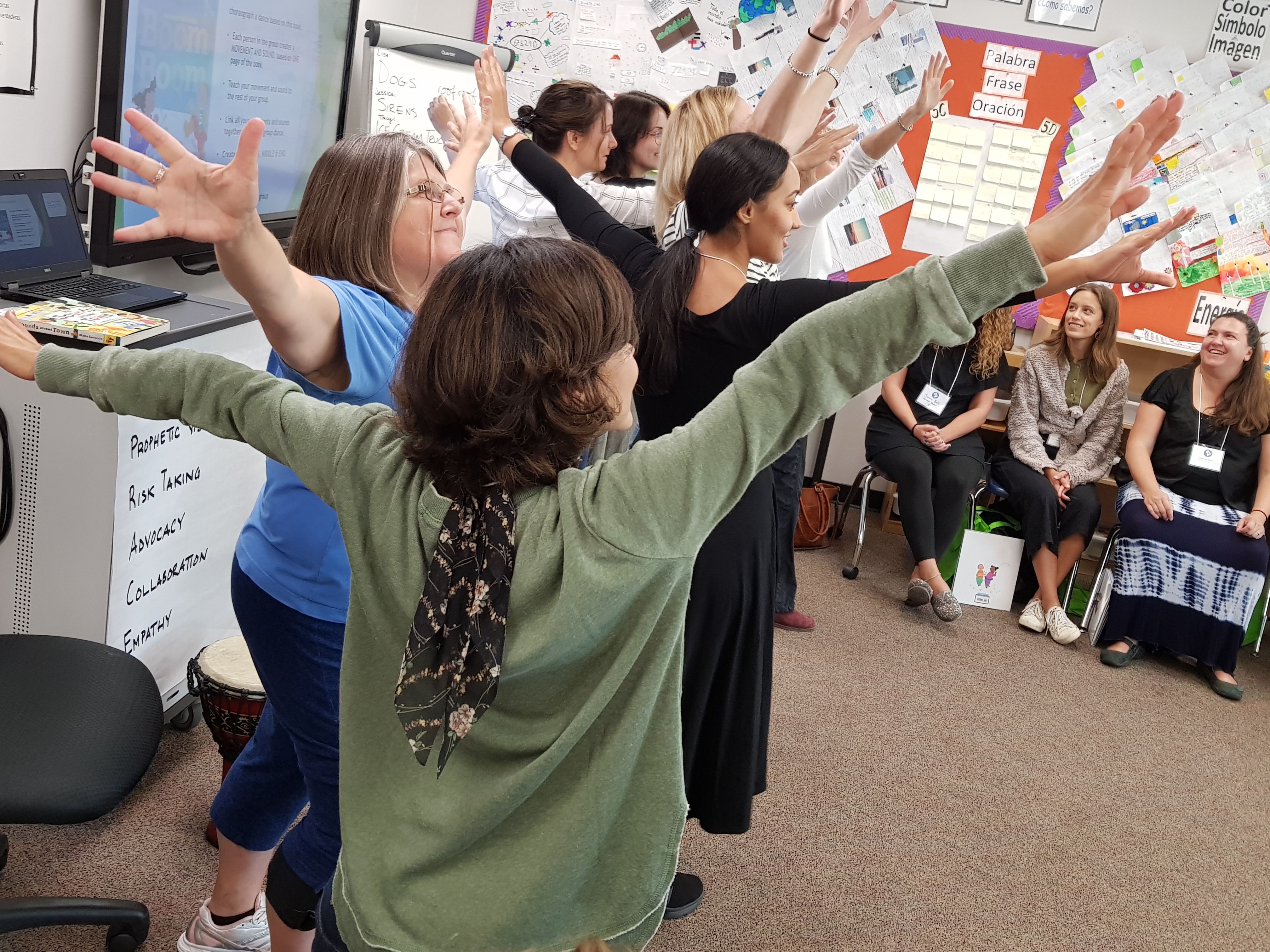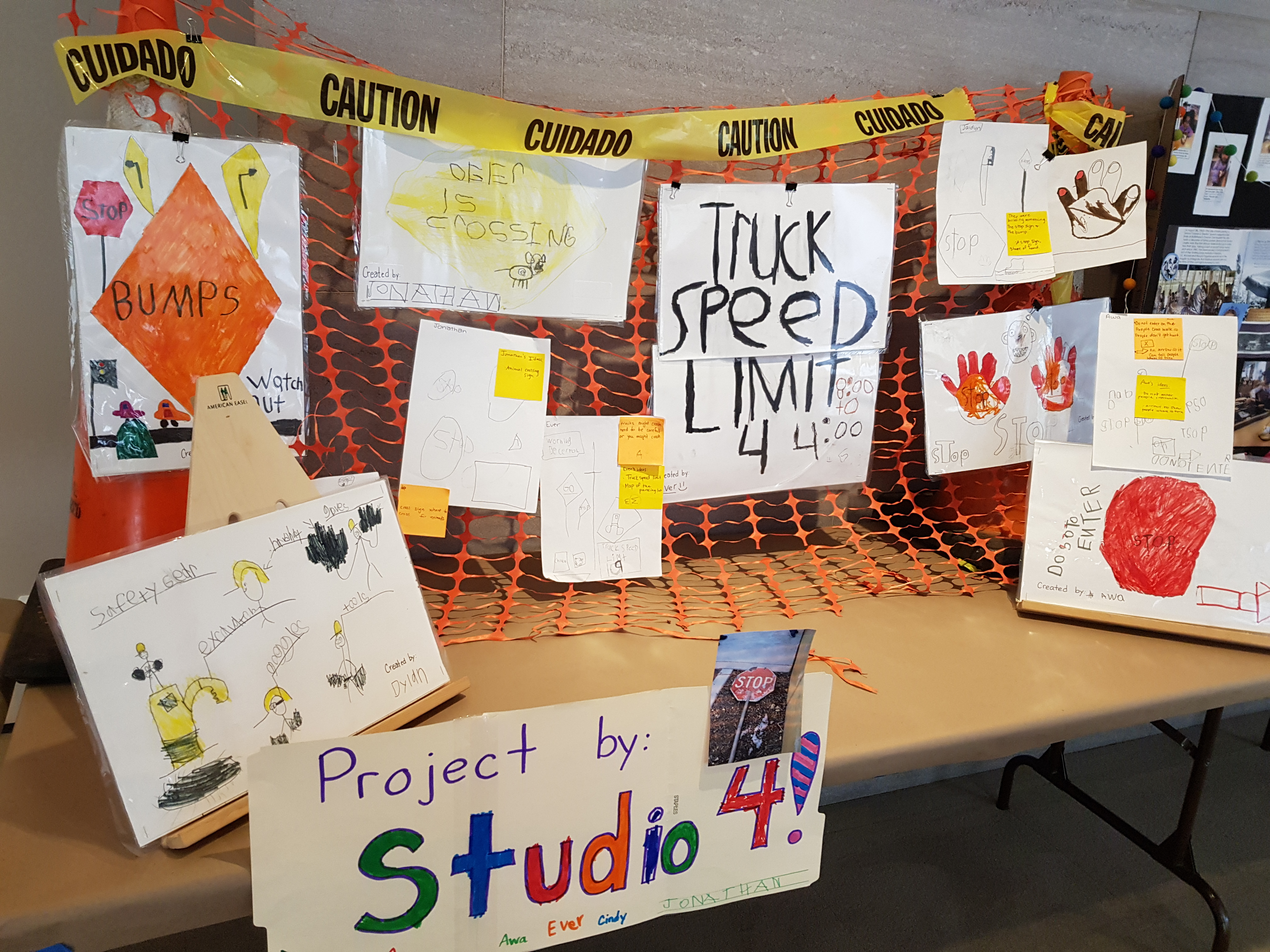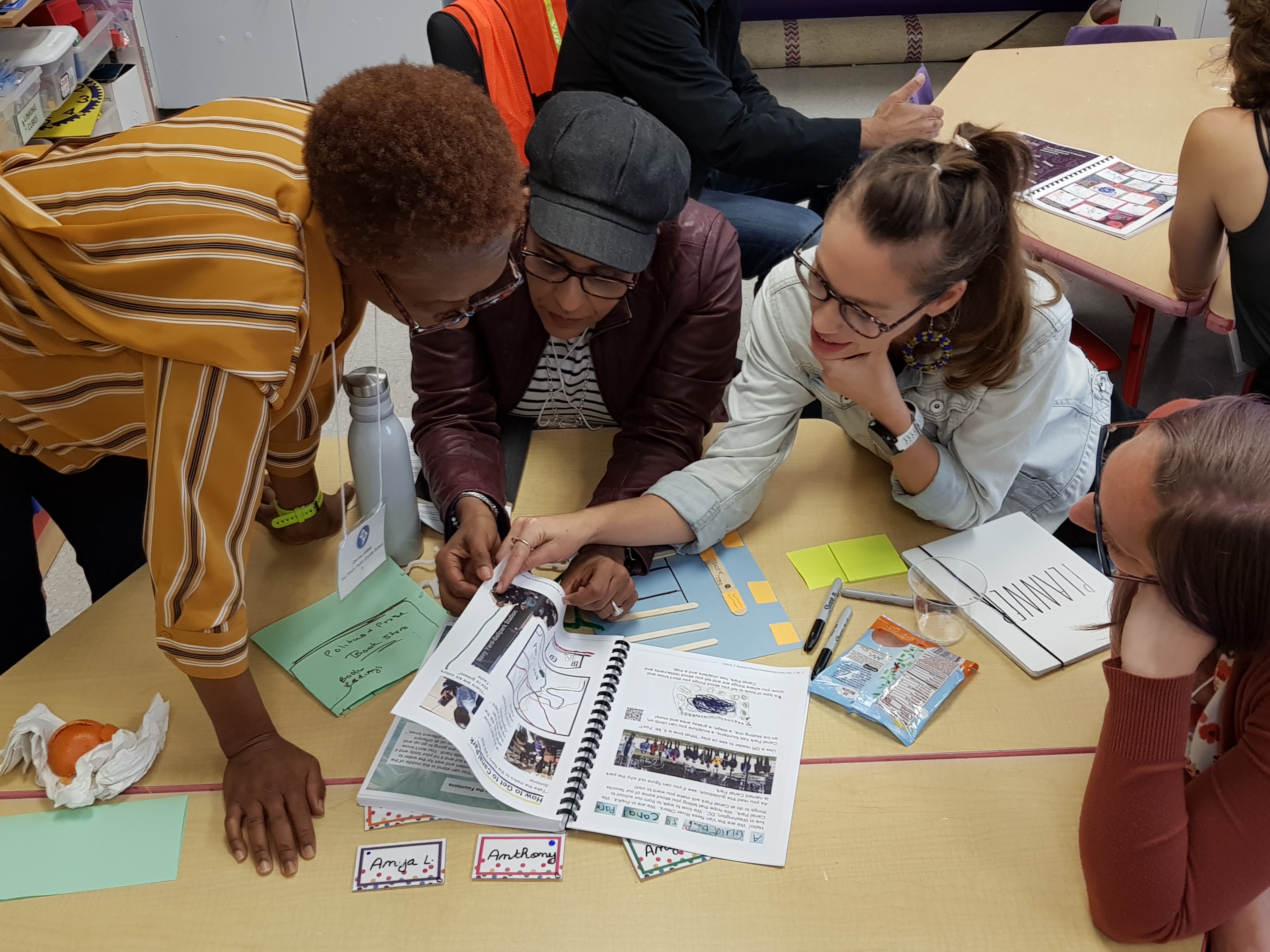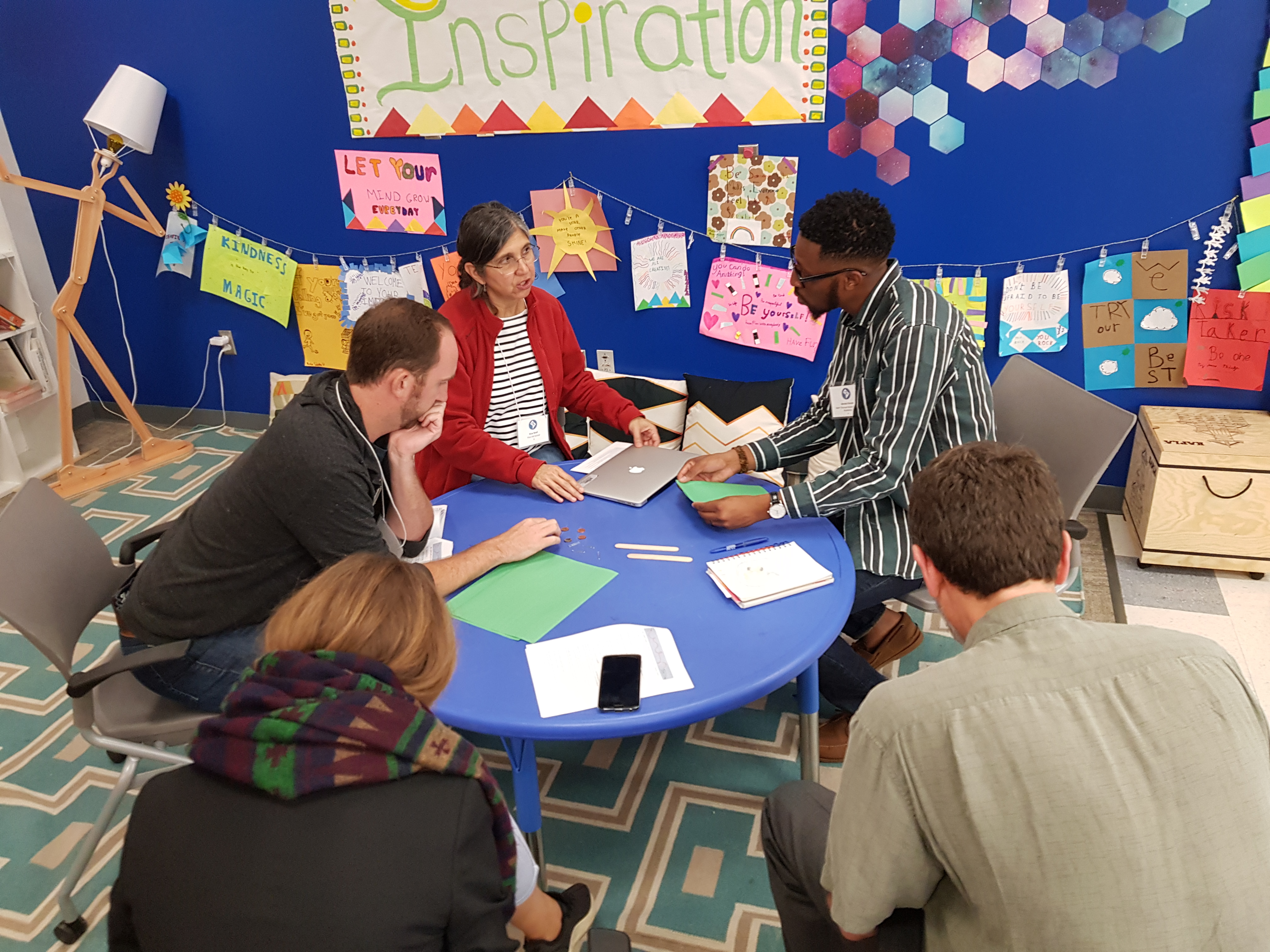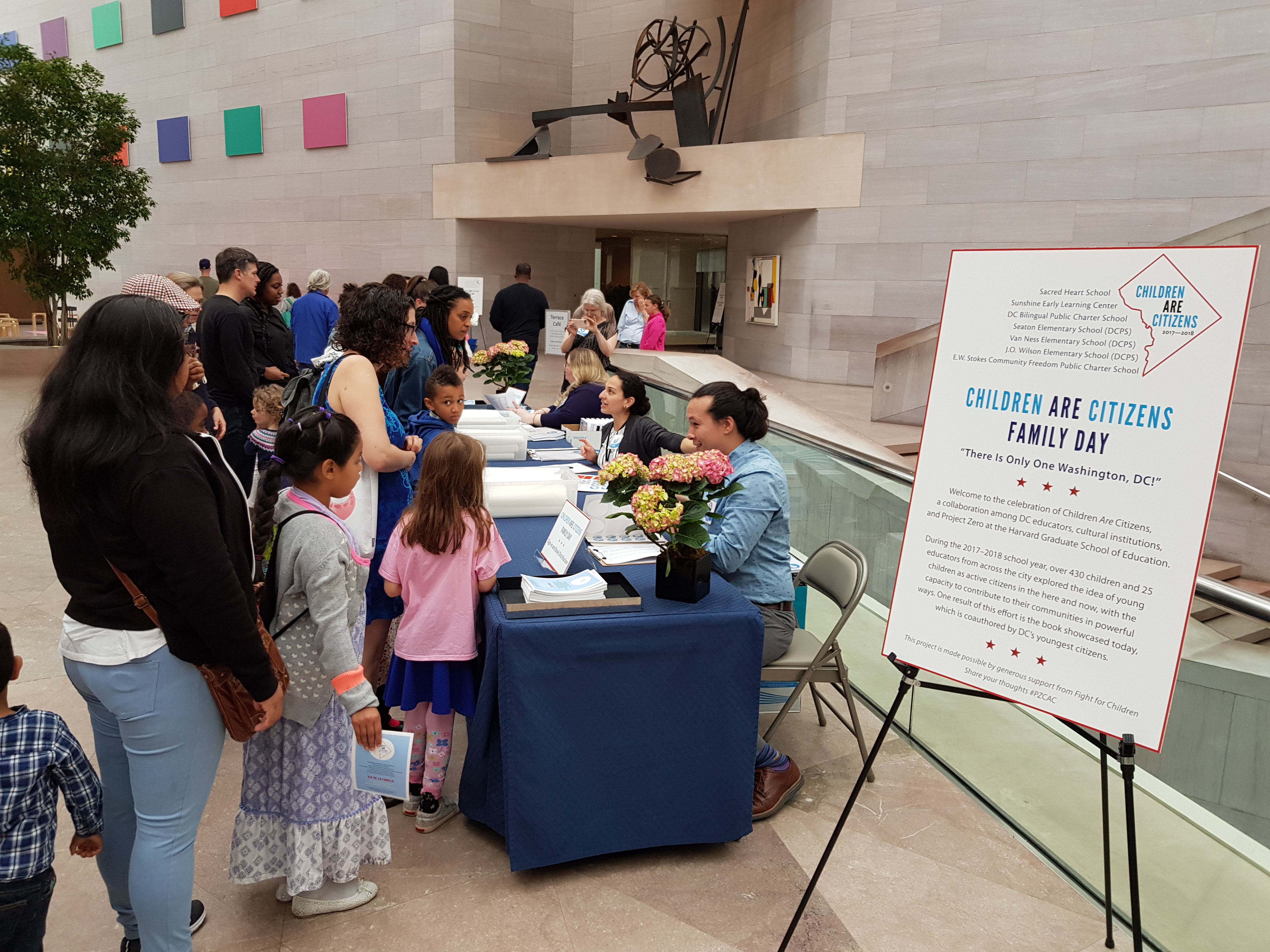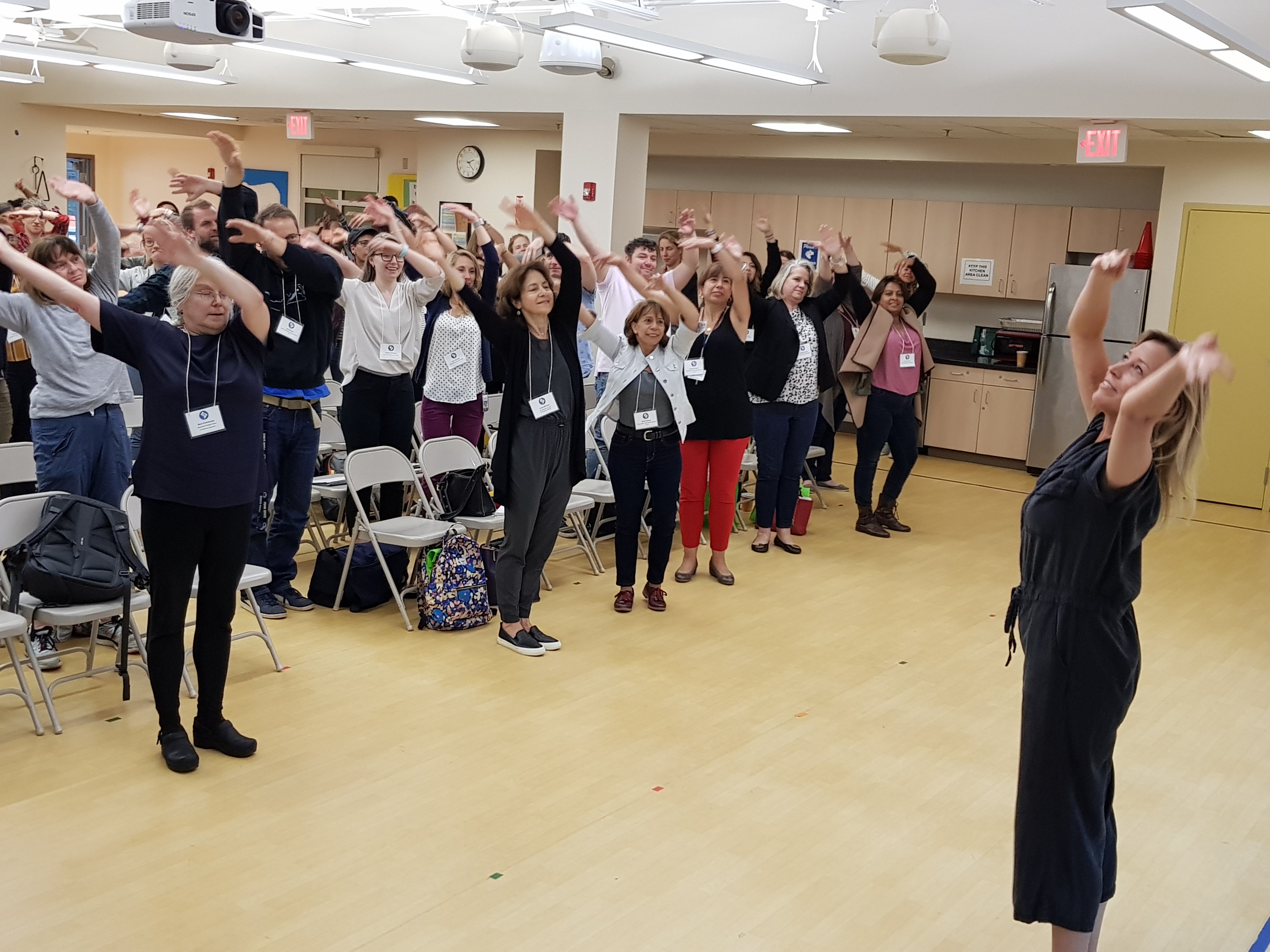Children Are Citizens
“Children Are Citizens: Children and Teachers Collaborating Across Washington, DC” is a curriculum project inspired by the practices of the world-renowned municipal preschools of Reggio Emilia, Italy. It is grounded in the belief that children are not just future or hypothetical citizens, but, instead, are current citizens in their own right, with the capacity to express their opinions and participate in the civic and cultural life of their city. The project aims to connect young children with the nation’s capital in meaningful, lasting ways.
As the world becomes increasingly connected and interdependent, knowledge of ourselves as individual learners and as members of a community becomes ever more important. People need to be able to listen to one another, to work together to identify and solve problems, and to acknowledge and respect diverse points of view. When children grow up in a culture and begin their schooling with support for thinking, feeling, and acting in groups, they are more likely to participate in and practice democracy as informed and caring citizens.
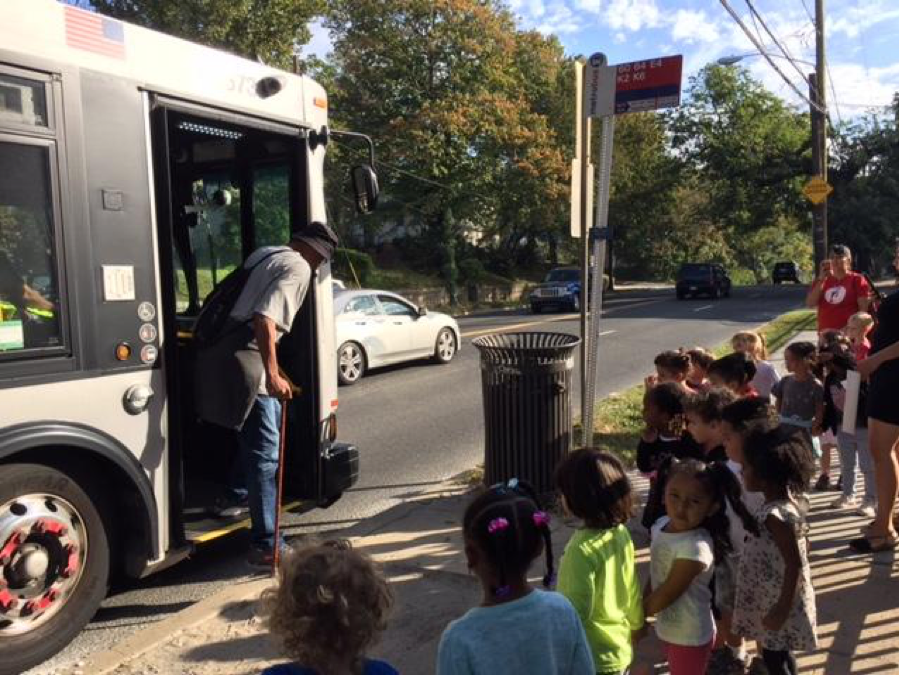
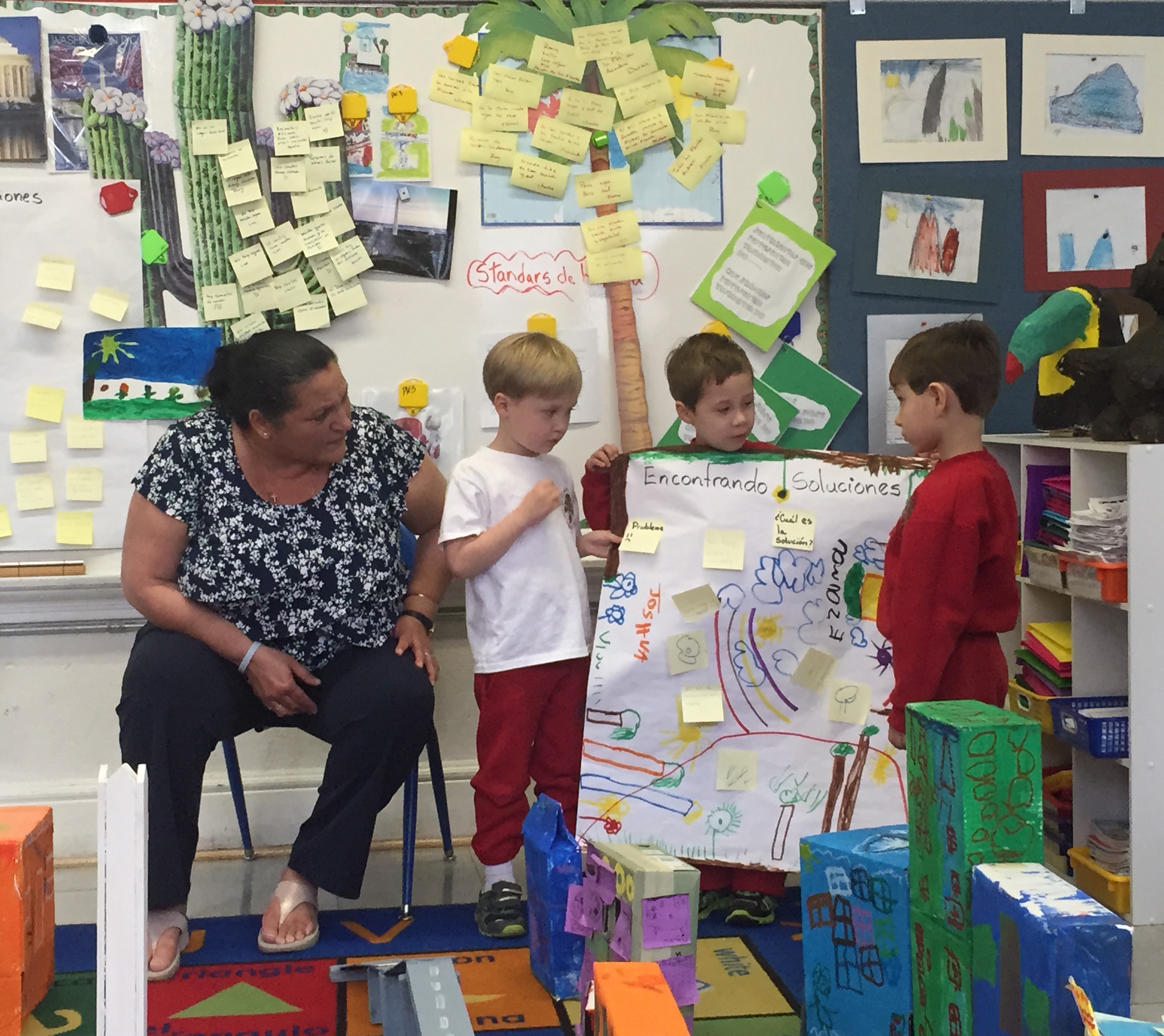
Begun by Project Zero early childhood researchers Mara Krechevsky and Ben Mardell and managed by the Professional Development Collaborative, this project organizes a series of monthly professional development seminars, provides consultations with the Project Zero researchers and local mentors, and facilitates collaborative meetings with colleagues on planning and enacting the emerging curriculum. Experienced Reggio practitioners serve as leaders of the seminar series and guide the participating teachers and mentors.

The project launches with the teachers providing provocations to their students about their community and the meaning of citizenship. Over several months of exploration, the teachers carefully listen to their students about what they find most interesting about DC and what they’d like to see improved. They organize ways to have young children explore the city, along the way learning that they are fascinated by things such as the Metro, the streetcar system, monuments, museums, Union Station, natural spaces, public art, and playgrounds.
The teachers support the children as they research these sites of interest in various ways. They listen as children ask questions and theorize about these places. The children talk, write, draw, play, improvise, and create three-dimensional models about their ideas. Teachers, children, and parents take field trips to various sites around DC, while cultural institution partners come into the classrooms to deepen and enliven the children’s research. The professional development seminars for the teachers introduce new ways to support children’s inquiry into the city. Children share their work, questions, and feedback across neighborhoods and across schools; in the process they became part of something bigger than themselves.

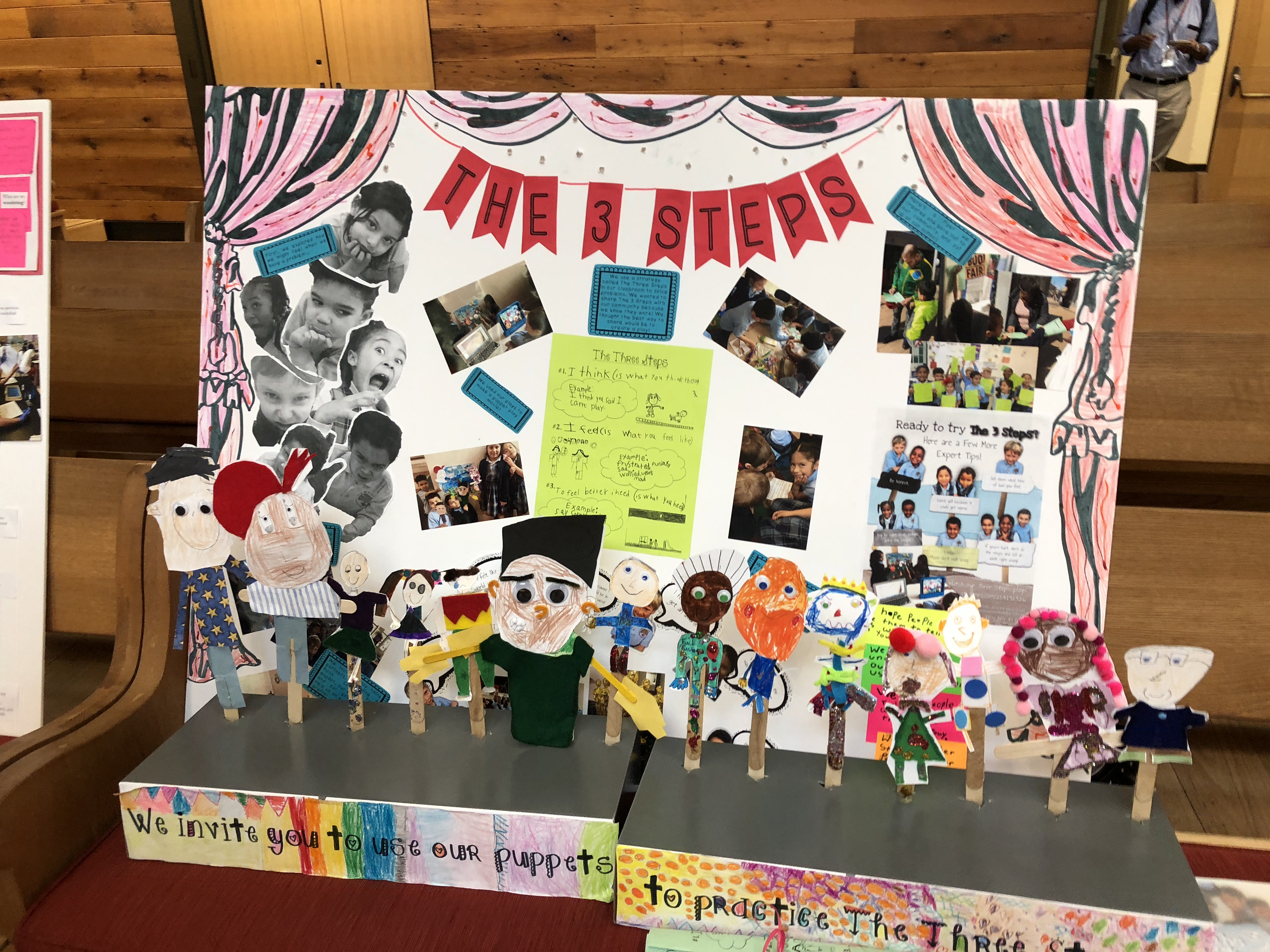
In the final phase of the project, the teachers and children synthesize their learning and create pages they contribute to a book about the project. The year culminates with a Family Day celebration and book launch.
For the 2017 book, click here
For the 2018 book, click here
Timeline for Children Are Citizens:
2014-15: CAC began with its first cohort of teachers in fall 2014, representing 20 classrooms and approximately 300 students. Members of that group included teachers and administrators from Sacred Heart School, School Within School at Goding (DCPS), Seaton Elementary School (DCPS), the Smithsonian Early Enrichment Center, and Washington International School. Funding came from PNC’s Grow Up Great program, the Annie E. Casey Foundation and an individual donor.
2016-17: In the second iteration of the project, there were six sites (17 classrooms and over 300 children) involved: DC Bilingual Public Charter School, Sacred Heart School, Seaton Elementary School (DCPS), Elsie W. Stokes Community Freedom Public Charter School, Sunshine Early Learning Center, and J.O. Wilson Elementary School (DCPS). Grants supporting the project came from Fight For Children and PNC’s Grow Up Great program.
2017-18: Seven sites featuring 25 classrooms and over 400 children were involved. Van Ness Elementary School (DCPS) joined the group of sites that had participated in 2016-17. Fight For Children supported the project that year.
2018-19: The first-ever Children Are Citizens Conference was held in October 2018. Over 100 educators, representing 33 schools, attended the conference at WIS’s Primary School campus in Georgetown. All of WIS’s language immersion Preschool, PreK and Kindergarten classes embarked on a CAC project, inspired by the conference.
2019-20: The second annual Children Are Citizens Conference took place in October 2019 at the WIS Primary School campus. The 130 participants represented 36 diverse schools. The PDC was awarded an East of the River Grant from the DC Commission on the Arts and Humanities to support the project at three sites in Ward 8: Excel Academy (DCPS), St. Thomas More Academy, and Sunshine Early Learning Center. Furthermore, WIS Preschool, PreK and Kindergarten teachers made CAC a permanent part of their International Baccalaureate Primary Years Program curriculum.
2020-2021: Children Are Citizens was named as one of 16 learning innovations highlighted in the Learning Across America Forerunner Report put out by the global education organization HundrED. The report highlights 16 system-level best practices that foster innovation at scale in 16 regions across the United States. You can find more information about each of the featured innovations and the HundrED Learning Across America Forerunners here.
The Covid-19 pandemic interrupted the project in March 2020, but we were able to re-launch in September, concluding with a virtual exhibition of learning in March 2021.
2021-2022: CAC was not currently active in this year, but its spirit lived on in classrooms across DC, as past participants shared their knowledge and experiences with their colleagues. At J.O. Wilson Elementary (DCPS), Ms. Ardalan, Ms. Gnau, and Ms. Wyrsch-Ba’s PreK 3s and 4s became environmental superheroes! Learn all about their eco-bricks project here. CAC was also featured in an article in the international Childhood Education Innovations magazine. The article, written by CAC educators Elise Heil and Grace Bogosian (Sacred Heart School), details their school’s involvement in CAC since its inception in 2014. (The youngest CAC cohort from the school was in PreK3 that year, and engaged in a CAC project through fifth grade. They have engaged in a CAC project each year of their Sacred Heart education!)
2022-23: The River School, a private primary school in Washington, DC, engaged the PD Collaborative in bringing Children Are Citizens to eight grade level teams in a year-long seminar series. Sarah Hair, a former early childhood teacher at Washington International School and a participant in CAC at WIS, led the seminars.
CAC was also featured as a chapter case study in the book, International Perspectives on Educating for Democracy in Early Childhood: Recognizing Young Children as Citizens (Routledge, 2023). The chapter was co-authored by Georgina Ardalan and Jim Reese.
At Janney Elementary School (DCPS), the entire Kinder team, guided by Georgina Ardalan, engaged students in a CAC project at the end of the school year. CAC was featured at the 2023 WISSIT.
The project has garnered national publicity in a variety of early childhood publications and was featured in The Atlantic online in 2015 and in Young Children (NAEYC) in 2017. Practices inspired by CAC live on in myriad classrooms across DC.
CAC is indebted to its cultural institution partners–DC Public Library, Imagination Stage, Inner City Inner Child, the National Building Museum, the National Gallery of Art and the Smithsonian’s National Air and Space Museum–who have provided invaluable STEAM-infused experiences for each of the participating classrooms.
